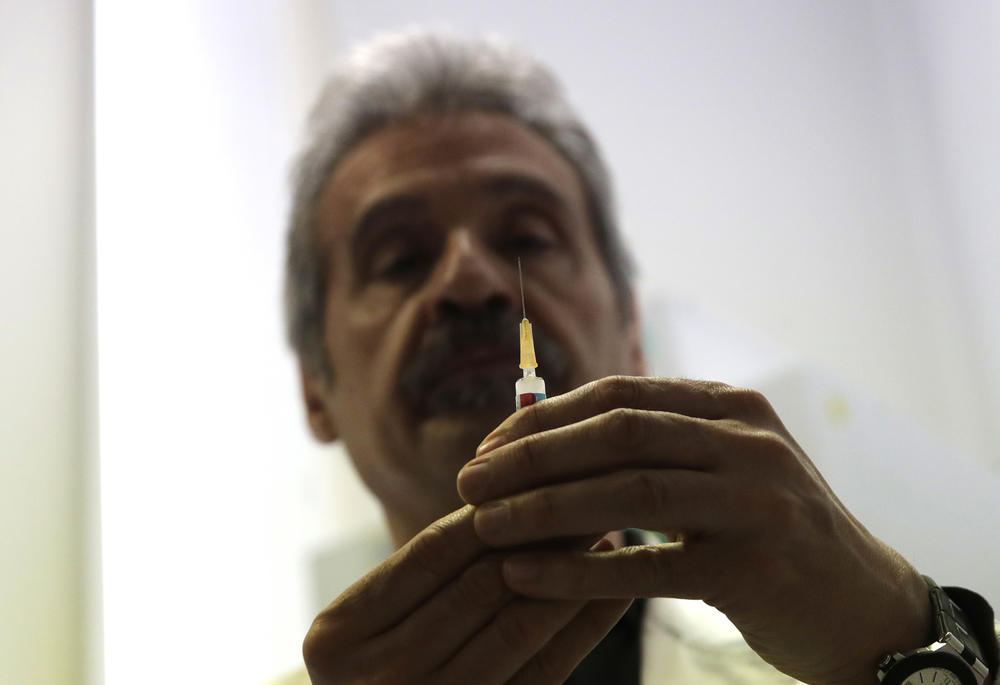Section Branding
Header Content
3 More Measles Cases Reported In Cobb County
Primary Content
Three members of a Cobb County family, at least two of whom were unvaccinated, have come down with measles after a middle school student was diagnosed, health officials said Friday.
Testing of a possible fourth case yielded negative results, the Georgia Department of Public Health said.
These individuals may have exposed other people to measles between Oct. 30 and Wednesday, Nov. 13. The third person's vaccine history is unclear.
Parents of students at Mabry Middle School were notified via email by the Cobb and Douglas Public Health Department about a possible exposure, and students who had not been vaccinated were encouraged not to return to school until Nov. 25, the letter said.
"It is highly likely these cases are all related, but the investigation into any linkage is ongoing at this time," DPH said in a news release.
Measles is spread by air-borne droplets when an infected person coughs or sneezes. The highly contagious disease is caused by a virus that can live on surfaces for hours.
PREVIOUS COVERAGE: Unvaccinated Cobb County Student May Have Spread Measles, Health Department Says
DPH Commissioner Dr. Kathleen E. Toomey said these additional cases of measles should be highly concerning for anyone who is not vaccinated with MMR.
"Measles is a serious disease, one which can lead to dangerous complications, even death,” she said.
The MMR (measles, mumps, rubella) vaccine is considered by the CDC a safe and effective way to prevent measles.
Toomey said vaccination not only protects the individual but also vulnerable populations - such as infants who are too young to be vaccinated and those who cannot be vaccinated for medical reasons.
So far this year, there have been 18 confirmed cases of measles in Georgia, which is more cases than in the previous decade combined.
The CDC recommends children receive their first dose of MMR vaccine between 12-15 months of age and a second dose between 4-6 years old. More than 95% of the people who receive a single dose of MMR will develop immunity to all three viruses. A second dose boosts immunity, typically enhancing protection to 98%.
This year saw the largest outbreak of measles in the U.S. since 1994, with 1,250 cases reported as of Oct. 3, largely driven by families choosing not to vaccinate their kids. Worldwide, the disease has resurfaced in areas that had been declared measles-free.
MORE: Why The Measles Surge Could Open The Door To A Host Of Other Diseases
The most important thing the state health department wants people to know is that people who think they may have been exposed and are exhibiting symptoms should NOT go to a doctor's office, hospital or clinic without calling first to alert staff.
Symptoms usually begin with a high fever, cough, runny nose and red, watery eyes. Then a rash of tiny, red spots breaks out. It starts at the head and spreads to the rest of the body.


